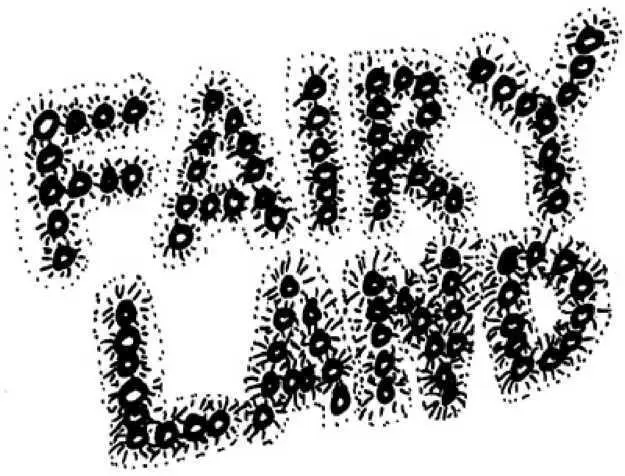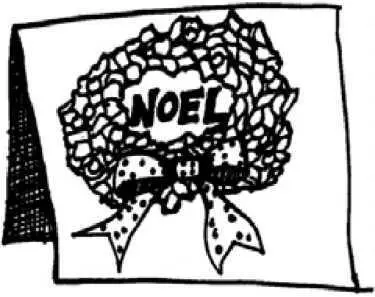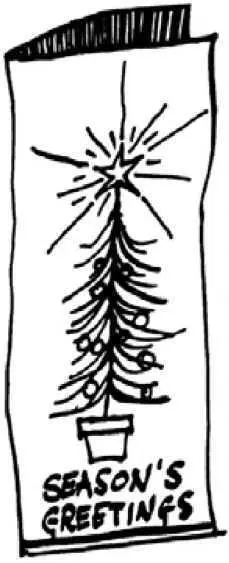“There you are,” said Dwayne, and his eyes crinkled in bittersweet amusement. He didn’t know who Wayne was. He welcomed him as a typical black robot. Any other black robot would have served as well. And Dwayne again carried on a wry talk with the Creator of the Universe, using a robot as an unfeeling conversation piece. A lot of people in Midland City put useless objects from Hawaii or Mexico or someplace like that on their coffee tables or their livingroom end tables or on what-not shelves—and such an object was called a conversation piece.
Wayne remained at parade rest while Dwayne told of his year as a County Executive for the Boy Scouts of America, when more black young people were brought into scouting than in any previous year. Dwayne told Wayne about his efforts to save the life of a young black man named Payton Brown, who, at the age of fifteen and a half, became the youngest person ever to die in the electric chair at Shepherdstown. Dwayne rambled on about all the black people he had hired when nobody else would hire black people, about how they never seemed to be able to get to work on time. He mentioned a few, too, who had been energetic and punctual, and he winked at Wayne, and he said this: “They were programmed that way.”
He spoke of his wife and son again, acknowledged that white robots were just like black robots, essentially, in that they were programmed to be whatever they were, to do whatever they did.
Dwayne was silent for a moment after that.
Mary Alice Miller’s father was meanwhile continuing to learn conversational French while lying down in his automobile, only a few yards away.
And then Dwayne took a swing at Wayne. He meant to slap him hard with his open hand, but Wayne was very good at ducking. He dropped to his knees as the hand swished through the air where his face had been.
Dwayne laughed. “African dodger!" he said. This had reference to a sort of carnival booth which was popular when Dwayne was a boy. A black man would stick his head through a hole in a piece of canvas at the back of a booth, and people would pay money for the privilege of throwing hard baseballs at his head. If they hit his head, they won a prize.
So Dwayne thought that the Creator of the Universe had invited him to play a game of African dodger now. He became cunning, concealed his violent intentions with apparent boredom. Then he kicked at Wayne very suddenly.
Wayne dodged again, and had to dodge yet again almost instantly, as Dwayne advanced with quick combinations of intended kicks, slaps, and punches. And Wayne vaulted onto the bed of a very unusual truck, which had been built on the chassis of a 1962 Cadillac limousine. It had belonged to the Maritimo Brothers Construction Company.
Wayne’s new elevation gave him a view past Dwayne of both barrels of the Interstate, and of a mile or more of Will Fairchild Memorial Airport, which lay beyond. And it is important to understand at this point that Wayne had never seen an airport before, was unprepared for what could happen to an airport when a plane came in at night.
“That’s all right, that’s all right," Dwayne assured Wayne. He was being a very good sport. He had no intention of climbing up on truck for another swing at Wayne. He was winded, for one thing. For another, he understood that Wayne was a perfect dodging machine. Only a perfect hitting machine could hit him. “You’re too good for me," said Dwayne.
So Dwayne backed away some, contented himself with preaching up at Wayne. He spoke about human slavery—not only black slaves, but white slaves, too. Dwayne regarded coal miners and workers on assembly lines and so forth as slaves, no matter what color they were. “I used to think that was such a shame,” he said. “I used to think the electric chair was a shame. I used to think war was a shame—and automobile accidents and cancer,” he said, and so on.
He didn’t think they were shames anymore. “Why should I care what happens to machines?” he said.
Wayne Hoobler’s face had been blank so far, but now it began to bloom with uncontrollable awe. His mouth fell open.
The runway lights of Will Fairchild Memorial Airport had just come on. Those lights looked like miles and miles of bewilderingly beautiful jewelry to Wayne. He was seeing a dream come true on the other side of the Interstate.
The inside of Wayne’s head lit up in recognition of that dream, lit up with an electric sign which gave a childish name to the dream—like this:

Listen: Dwayne Hoover hurt so many people seriously that a special ambulance known as Martha was called, Martha was a full-sized General Motors transcontinental bus, but with the seats removed. There were beds for thirty-six disaster victims in there, plus a kitchen and a bathroom and an operating room. It had enough food and medical supplies aboard to serve as an independent little hospital for a week without help from the outside world.
Its full name was The Martha Simmons Memorial Mobile Disaster Unit, named in honor of the wife of Newbolt Simmons, a County Commissioner of Public Safety. She had died of rabies contracted from a sick bat she found clinging to her floor-to-ceiling livingroom draperies one morning. She had just been reading a biography of Albert Schweitzer, who believed that human beings should treat simpler animals lovingly. The bat nipped her ever so slightly as she wrapped it in Kleenex, a face tissue. She carried it out onto her patio, where she laid it gently on a form of artificial grass known as Astroturf.
She had thirty-six-inch hips, a twenty-nine-inch waist, and a thirty- eight-inch bosom at the time of her death. Her husband had a penis seven and a half inches long and two inches in diameter.
He and Dwayne were drawn together for a while—because his wife and Dwayne’s wife had died such strange deaths within a month of each other.
They bought a gravel pit together, out on Route 23A, but then the Maritimo Brothers Construction Company offered them twice what they had paid for it. So they accepted the offer and divided up the profits, and the friendship petered out somehow. They still exchanged Christmas cards.
Dwayne’s most recent Christmas card to Newbolt Simmons looked like this:

Newbolt Simmons’ most recent Christmas card to Dwayne looked like this:

My psychiatrist is also named Martha. She gathers jumpy people together into little families which meet once a week. It’s a lot of fun. She teaches us how to comfort one another intelligently. She is on vacation now. I like her a lot.
And I think now, as my fiftieth birthday draws near, about the American novelist Thomas Wolfe, who was only thirty-eight years old when he died. He got a lot of help in organizing his novels from Maxwell Perkins, his editor at Charles Scribner’s Sons. I have heard that Perkins told him to keep in mind as he wrote, as a unifying idea, a hero’s search for a father.
It seems to me that really truthful American novels would have the heroes and heroines alike looking for mothers instead. This needn’t be embarrassing. It’s simply true.
A mother is much more useful.
I wouldn’t feel particularly good if I found another father. Neither would Dwayne Hoover. Neither would Kilgore Trout.
Читать дальше













